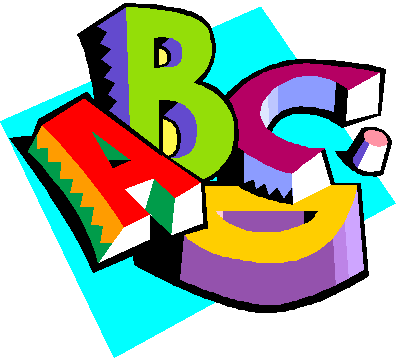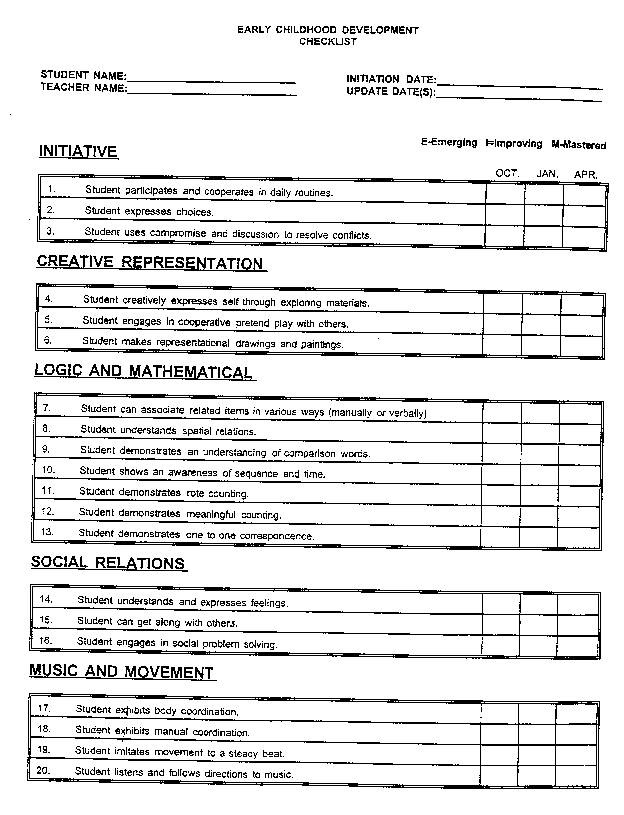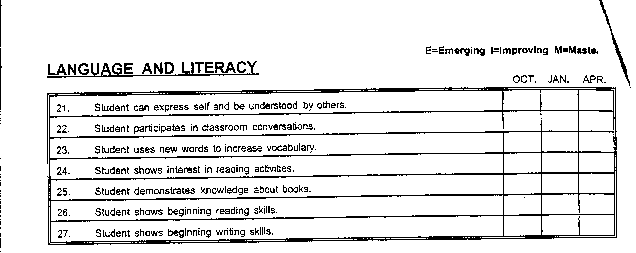Assessment
Techniques
Portfolios are a widely recommended way to
assess the work and document the progress of students of all ages. Allowing
children to examine work and reflect on its quality as they help select
materials for inclusion is an important part of portfolios use (e.g., Klimenkov
& LaPick, 1996, Moening & Bhavnagri, 1996: Paris & Ayres, 1994).
Children are able to look back on their earlier work and to reflect proudly upon
their progress. The child who says she wants to include a piece in his/her
portfolio because "I did it good," or who looks back on earlier work
and sees the he/she now can write more neatly, experience a real sense of
accomplishment. In addition, portfolios are useful as a focus for parent
conferences, as the provide concrete demonstrations of children's progress and
allow parents to better appreciate and understand their children's work.
Assessment
Alternatives Used In Our School
 Short
Answer, open-ended:
Short
Answer, open-ended:
Any item or task that requires the production of a short written or
verbal answer response on the part of the respondent.
 Observation:
Observation:
An assessment technique that requires the student to perform a task
while being observed and rated using an agreed upon set of scoring criteria.
 Interview:
Interview:
An assessment technique in which the student responds to verbal
questions form the assessor.
 Individual
Performance Assessment:
Individual
Performance Assessment:
Any assessment that requires the student to perform (in a way that
can be observed) an assessment task alone. For example, a student may be asked
to explain an illustration in a book and asked how it correlates with the lesson
taught.
 Group
Performance Assessment:
Group
Performance Assessment:
Any assessment that requires students to perform the assessment task
in a group setting. For example, a performance assessment as defined in
individual performance assessment becomes a group performance assessment when
the task is performed in a group and the individual's rating is based on his/her
performance as part of the group.
 Extended
Response, open-ended:
Extended
Response, open-ended:
Any item or task that requires to produce and extended written
response to an item or task that does not have one right answer (for example, a
picture drawing or storybook illustration by the student).
 Portfolio:
Portfolio:
An accumulation of a student's work over time that demonstrates
growth toward the mastery of specific performance criteria against which the
task included in the portfolio can be judged.
Early
Childhood Development Checklist
Below is a checklist
that Sawgrass Elementary will be using to see how your child is growing developmental. These
assessments are done three times a year, in October, January, and April. This is
put on this website so that you may work with your child at home and see that
he/she reaches his/her fullest potential.


 Back to Home Page
Back to Home Page
 Short
Answer, open-ended:
Short
Answer, open-ended:

 Back to Home Page
Back to Home Page